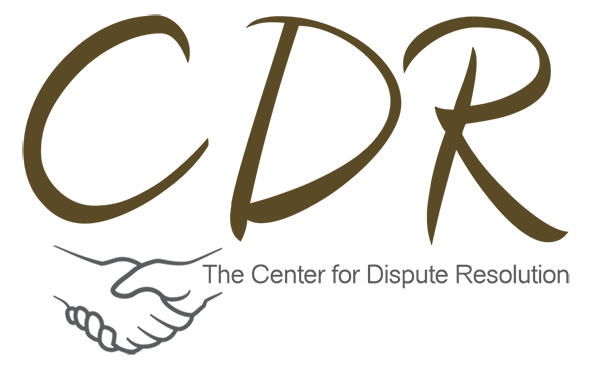
Workplace Violence: 8 Predictions for Healthcare
It’s no secret that conflict and workplace violence is a concerning topic for healthcare. Every day there are new reports of violent events happening at healthcare facilities across the nation. Some may think that these acts are largely perpetrated by individuals suffering from some type of mental illness, but this is often not the case.
Over the past few years, we’ve seen a dramatic increase in the amount of events of conflict and workplace violence in healthcare and there appears to be no slowing down in sight. For a workforce trained to heal people instead of being trained to defend themselves, this has been very tragic. Traditionally, no one has gone into the medical profession with the understanding that they may be the target of violence. Additionally, we’ve also frequently envisioned that the patient and the patient’s family would be respectful and appreciative of the level of care that nurses, doctors, and other medical staff aim to provide, but this has become lost somewhere along the way.
Medical executives are aware of the problems that their staff face every day in regard to conflict and violence. Across websites targeting medical executives and other forms of media, such as magazines and journals, one can regularly find articles and studies about violence in the medical profession. Professional associations that hospitals and healthcare executives are regularly members of frequently have webinars and other type training or information sessions on the topic as well. For one to claim they do not know the threat that healthcare workers face, they would have to be living under a rock at this point!
Optics Matter
I read an article the other day that highlighted how some medical staff members had been assaulted by a patient or family member of the patient but were discouraged by their administration from reporting the act to the police. I can’t think of anything else that could be more tragic! Is there actually a better way to communicate to your staff that you are not concerned about their safety and holding offenders accountable because you are more concerned about the optics of the event and how the public may perceive the situation? I’m sure these hospitals have a tremendous employee morale problem as well as more severe issues regarding staff shortages in comparison to other facilities. If they were discouraged from reporting the act to the police, I also question whether the assaulted employee might have been discouraged from filing internal hospital forms documenting the attack. If so, would these instances be a prime example of the old adage of “if it isn’t documented, it didn’t happen”?
Perhaps the problem is more of an issue of insulation. Executives who often have the power and authority to seek out and implement initiatives to reduce conflict and violence normally are not exposed to the violent acts that nurses, doctors, and other staff members are regularly exposed to. Granted, they may hear about the perpetration of such acts but they may be skeptical as to whether the acts were as severe as reported or stated. Either way, little to nothing has been done to help healthcare workers develop the skills and strategies to resolve conflict and de-escalate violence.
Looking Into the Future
With all of this, one has to question what the future of healthcare may look like. Unless strategic change is made and unless the threat of conflict and workplace violence is taken more seriously by healthcare administrators, I can easily foresee the following predictions becoming a reality:
- Conflict and workplace violence will continue to rise. We’ve already seen this over the past few years and unless strategies are put into place to prevent these acts, patients, family members of patients, or others will continue to pose a threat to healthcare workers as there is nothing preventing them from doing so.
- We will become desensitized to the violence. This has already been witnessed regarding mass shootings across the United States. Similarly, we could easily transition into a mindset where we see violence and conflict in healthcare as being the norm instead of being discouraged, unruly, and/or unlawful behavior.
- Increased staff shortages. Healthcare will continue to see an increase in staff shortages across all ranks as individuals will avoid the profession due to the increased risk of violence combined with a lack of protective measures.
- Increasingly inefficient facilities. Medical facilities will be unable to achieve their mission and purpose because they will lack the human resources to accomplish even the most basic of tasks.
- Increased liability for healthcare facilities. Victims of violence will pursue legal means to hold healthcare facilities responsible for failing to provide standards and tactics to effectively ensure the safety of healthcare workers, patients, and visitors.
- Increased potential civil and criminal liability for administrators. This would be especially the case in situations where the victim was encouraged by the administrator to not file reports with the police and/or internal reports with the facility about their victimization.
- Reduced patient care. The cause of this could be two-fold: one, staff shortages would mean that staff would not be able to spend as much quality time with a patient as needed to thoroughly do their job. Second, due to the potential risk of violence, staff members may limit their exposure to patients and their family members.
- Staff members are increasingly responsible for their own training. For those who still desire to go into the profession, they will bear the responsibility to pursue their own training on conflict resolution and violence de-escalation.
Conclusion
At some point, the current trajectory must change. Conflict and workplace violence in healthcare must begin to be taken seriously. Additionally, executives must realize that simply having security staff available is not an end-all to the problem. Having security staff on campus is a start but their effectiveness in reducing conflict or workplace violence is suspect at best. If serious change doesn’t happen, tremendously rough days will be experienced in the not-so-distant future for healthcare.
✅ Resolve disputes effortlessly. ✅ Build stronger relationships. ✅ Subscribe FREE now!
Don't miss out! Join us today. 🚀


Comments are closed